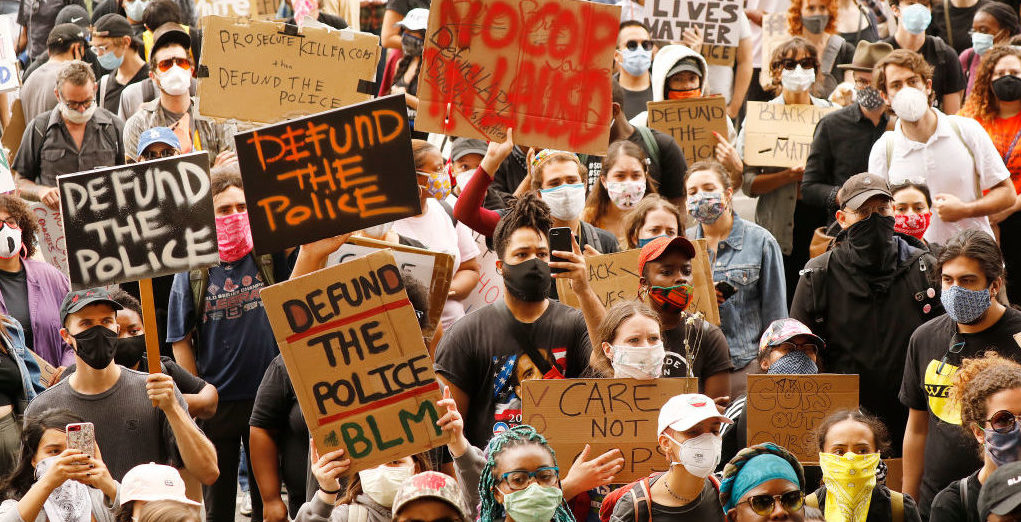Just before the dark times began I re-read Bobos in Paradise, David Brooks’s entertaining, best-selling 2000 book about America’s then-new elite, and it was striking how the age described seems so vanished. And, in many ways, changed for the worse.
The most striking bit was where Brooks writes about a media class comprised of journalists “at national publications [who] can now count on six-figure salaries when they hit middle age”, and of liberal arts majors who “can wake up one day and find themselves suddenly members of the top-income bracket”.
He speculated that life was becoming so comfortable for Bobos that politics might become quite boring, the two main parties so close together in ideology people would only be arguing about technical details (in so many words).
Anyway, cut to “twenty years later” and mobs of hooded extremists are fighting it out in the street and government squads in camo gear led by people called “Chad Wolf”. Narrator: American politics did not become more moderate.
A year after Bobos, Brooks wrote an essay, The Organization Kid, about how un-rebellious students had become, obsessed with building their careers rather than protesting or other wildness. It was a fair enough analysis of his generation, Ross Douthat writes in his most recent comment, because meritocracy at the time seemed to work. Now instead it has become this “exhausting ‘Alice in Wonderland’ Red Queen Race of full-time meritocratic achievement” in the words of a pseudonymous commentator.
American culture has always emphasised competition more than any other, which was part of its strength, economically and socially, leading to a more meritocratic social hierarchy which allowed talent to rise.
But meritocracy has its dark side, in particular the low esteem it casts on those who don’t win at the game of life, made worse by the erosion of the institutions that once provided a buffer and comfort — family, community, religion. For the poor, drugs are a way of coping with this disaster, a substitute for faith. For many of the middle-class precariat, it’s politics-as-replacement religion. Many are literally addicted to the sense of outrage that the little device in the pocket provides on an hourly basis, and also provides some sense of dignity because they can at least distinguish themselves from the Brexit and Trump-voting rubes below them.
But the over-competitiveness Douthat describes is also one of the root causes of the darkening political intolerance across the water. When a political view becomes a mark of status, then the competition to appear higher status will push politics in an extreme direction.
There are no surrender papers for conservatives to sign; you cannot just accept defeat and move on, because progressivism is a transformative religion that must go forward by its very nature because there is always “so much more work to be done”. But it is not a coincidence that this new form of intolerant politics has found its home in the land of competition and meritocracy.











Join the discussion
Join like minded readers that support our journalism by becoming a paid subscriber
To join the discussion in the comments, become a paid subscriber.
Join like minded readers that support our journalism, read unlimited articles and enjoy other subscriber-only benefits.
Subscribe